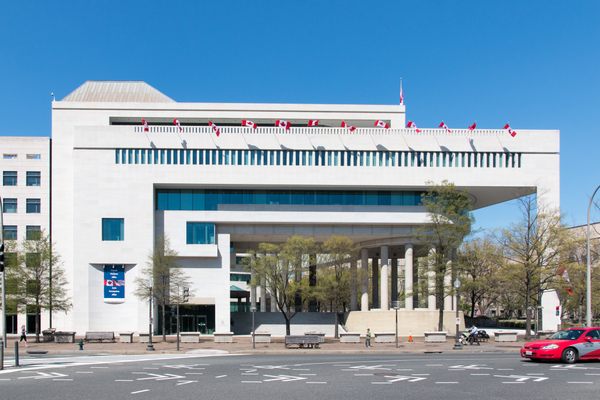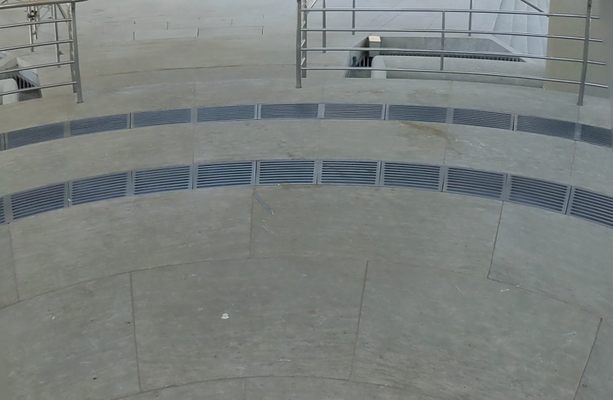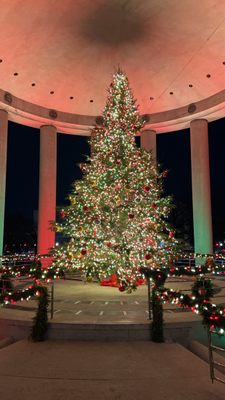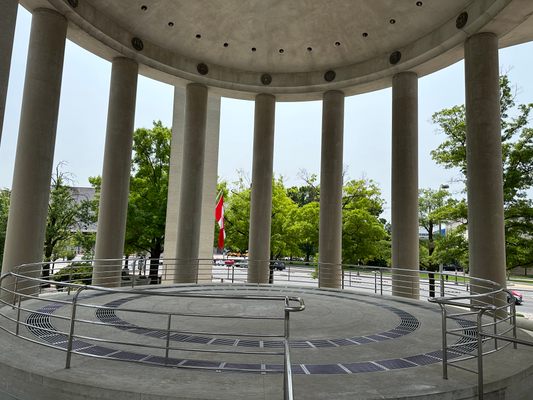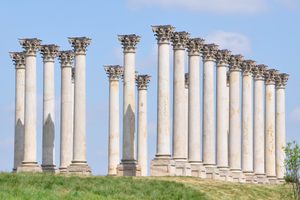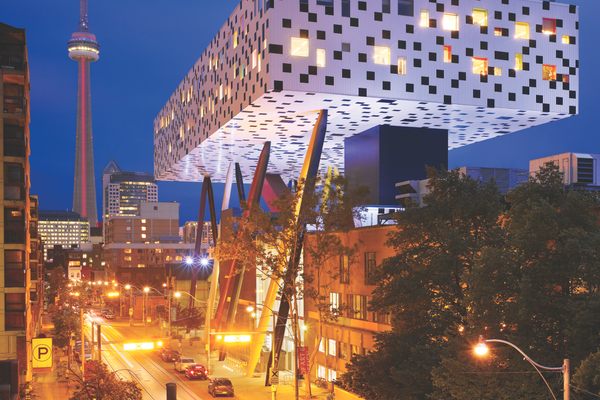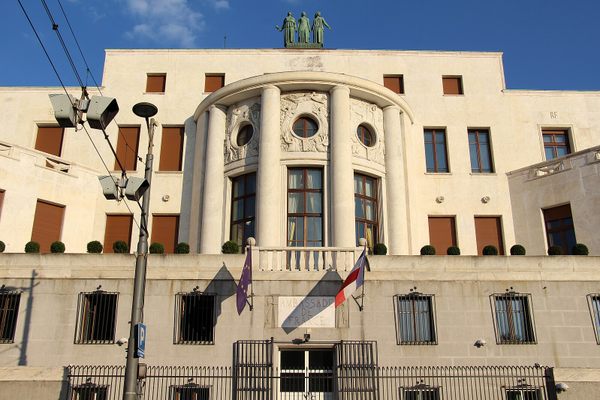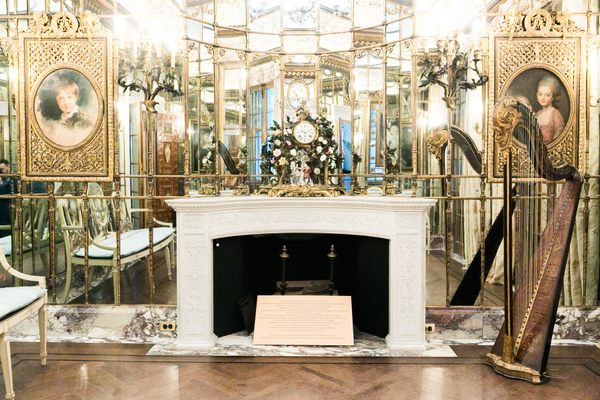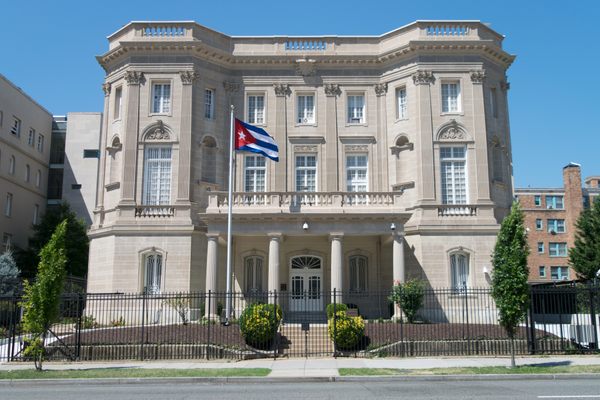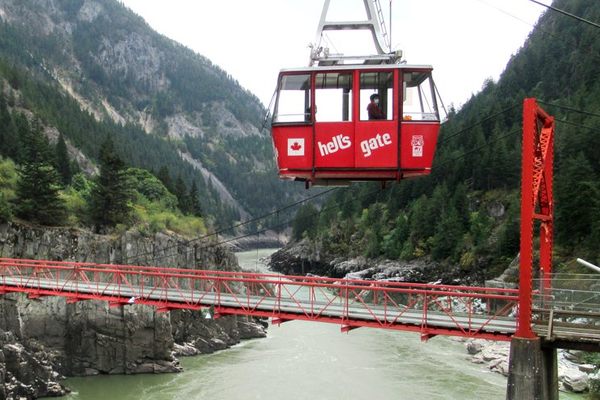About
One of the most remarkable architectural features in the Nation's Capital belongs to our neighbors to the north. Adorning the Embassy of Canada's southeast corner is a striking rotunda featuring a domed roof supported by 12 pillars. Each is topped with a crest representing one of the 10 provinces and two territories that existed at the time of its construction. There is a seal above the rotunda's entrance that represents Nunavut, the third Canadian territory, which was established in 1999. Beneath the rotunda is a circular waterfall that represents the mighty Niagara Falls, the most famous landmark on the border between the United States and Canada.
While the visual aesthetics of the rotunda are breathtakingly beautiful, the most jaw-dropping aspect of this magical place is the acoustical secret kept within its inner circle. Quick glances at the floor grates and small hollows in the ceiling explain the bizarre echoes that one hears when stepping into the center of the rotunda and the powerful natural amplification of vocalizations made by visitors. Step outside the grated area and the effect immediately vanishes.
The embassy was designed by famed British Columbian architect Arthur Charles Erickson. He was known for his modernist style and the inclusion of light and water as prominent design features in his work, both of which are key elements adding to the splendor of the rotunda. Some of his other most famous buildings include the Museum of Glass, Robson Square, and Roy Thomson Hall.
Related Tags
Know Before You Go
The rotunda is located between the Capitol Building and the White House along Pennsylvania Avenue. If the front stairs are gated off, the rotunda can also be accessed via a staircase on the right side of the building.
Community Contributors
Added By
Published
June 21, 2021


